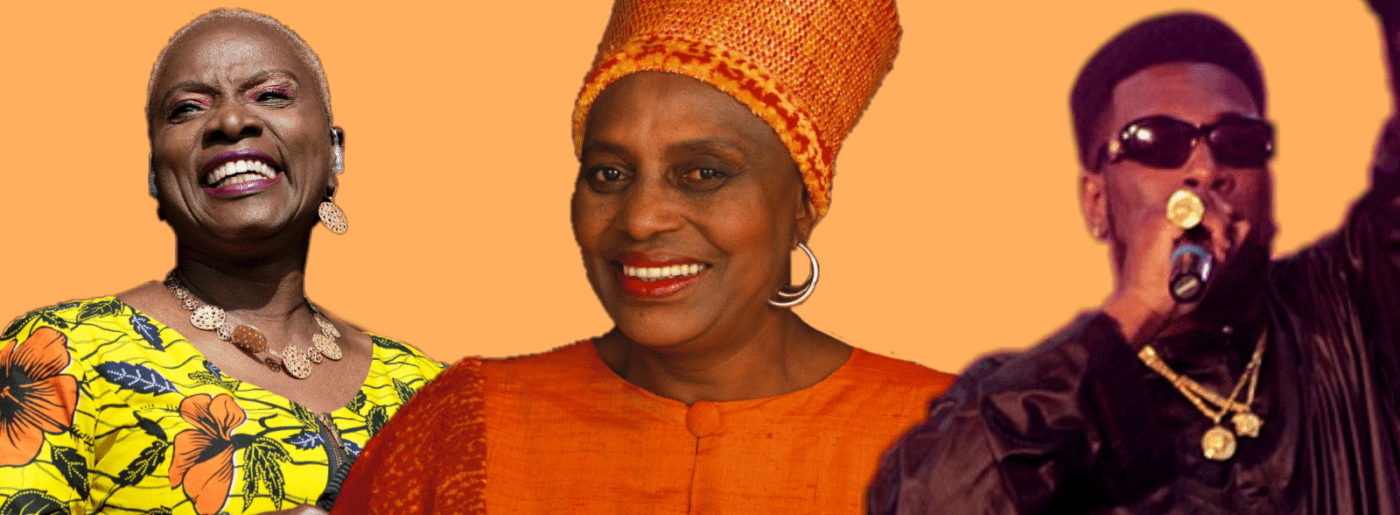World Music becomes Global Music at the Grammys, but has anything really changed?
On 3 November 2020, news broke that the Grammys had chosen to rename the category of Best World Music Album to Best Global Music Album. In a statement released on the Grammys website on 9 November, the Recording Academy acknowledged the significance of the change in terminology. World Music is a contentious, colonial-rooted term in contrast to Global Music, which they describe as “more relevant, modern, and inclusive”. While this change is a welcome and significant gesture, it does raise questions about whether or not the move is solely performative and if the rules that govern this revamped category are any different to those that governed that of the Best World Music one.
Before we address the difference between Global Music and World Music, it is essential to first dive into the origins of World Music and the circumstances surrounding the World Music Category at the Grammys. The term World Music was coined by American ethnomusicologist Robert E. Brown in the early 1960s but entered mainstream consciousness in the 1980s when the media and music industry used it as a marketing tool to classify a range of non-Western music styles. The term itself is vague, broad and has been referred to by some sources as virtually meaningless.
World Music was a politically correct way of calling our music Third World Music, therefore putting us in a closed box from which it was very difficult to emerge
According to the rules of the former Best World Music Album category, first presented in 1992, the award recognised “excellence in albums of world music, including recordings of international non-Western classical music, international non-American and non-British traditional folk music, international cross-cultural music based on the previously mentioned genres as well as international recordings of world beat, world jazz, world pop, and cross-cultural music”. Albums of reggae, Latin or European pop music were not eligible in this category and were expected to be entered in other categories.
Angelique Kidjo, a Beninese music legend and three-time winner of the Best World Music Album, recalls revered South African singer and activist Miriam Makeba once telling her that, “World Music was a politically correct way of calling our music Third World Music, therefore putting us in a closed box from which it was very difficult to emerge”. This criticism is similar to the issues Black artists have with Urban Music categories, which Alternative Hip Hop artist Tyler, the Creator once described as “a politically correct way to say the n-word”. Given World Music’s widespread criticism and the dissatisfaction about the category’s connotations, it is unsurprising that the Grammys chose to distance themselves from the term and rename the award.
But what change has been made to the World Music category exactly? Well, according to the Grammys, the award’s new name “symbolizes a departure from the connotations of colonialism, folk and ‘non-American’ that the former term embodied while adapting to current listening trends and cultural evolution among the diverse communities it may represent”. Today, what is defined as mainstream, popular music particularly in the West, has vastly changed. We can see this with K-Pop artists like BTS and Blackpink as well as reggaeton and Latin pop artists like J Balvin, Bad Bunny and Maluma dominating Global streaming charts and winning big awards like at the MTV VMAs. The Recording Academy, however, has not been specific about whether this name change will affect the actual rules and restrictions of the category, including the award’s eligibility and its nomination and voting processes.
The new category still ignores that there are non-Western nations where English is not only spoken but is a primary and unifying language
Moreover, I still feel that having just one award to recognise non-Latin or reggae music from around the world is not enough. It is hard to classify music into categories and award artists based on those classifications. It is even harder, however, for a Global Music category where more traditional styles of music from around the world are judged alongside contemporary ones from newer artists.
The 2019 Grammys showed this when afro-fusion Grammy hopeful Burna Boy lost out on the Best World Music album award to Angelique Kidjo, whose album Celia was an afrobeat-infused tribute to Cuban icon Celia Cruz, known as the Queen of Salsa. In her victory speech, Kidjo dedicated her award to Burna Boy and emerging African artists who are taking the world by storm with their music. Both artists produced phenomenal albums, but in my opinion, their works should not have been in the same category. There should be space to award styles like the more traditional afrobeat – a funk, jazz and highlife fusion genre pioneered by Nigerian musician Fela Kuti in the 70s – as well as the newer afrobeat, an umbrella term used to describe 21st-century West African popular music. Though afrobeat is inspired by its more traditional predecessor, they are importantly distinct.
It is still unclear as to whether the Best Global Music Album category will, in reality, change anything for the artists nominated in it who are predominantly from the Global South. The Oscars made a similar change when it renamed its Best Foreign Film category to Best International Feature Film. The change did not avoid criticism given that the new category still ignores that there are non-Western nations where English is not only spoken but is a primary and unifying language. These nations continue to be excluded from the category, given its non-English mandate.
We can only wait and see how future nominations and awards play out in the Best Global Music Album category, starting with the 2021 Grammy nomination announcements on 24 November.

Comments